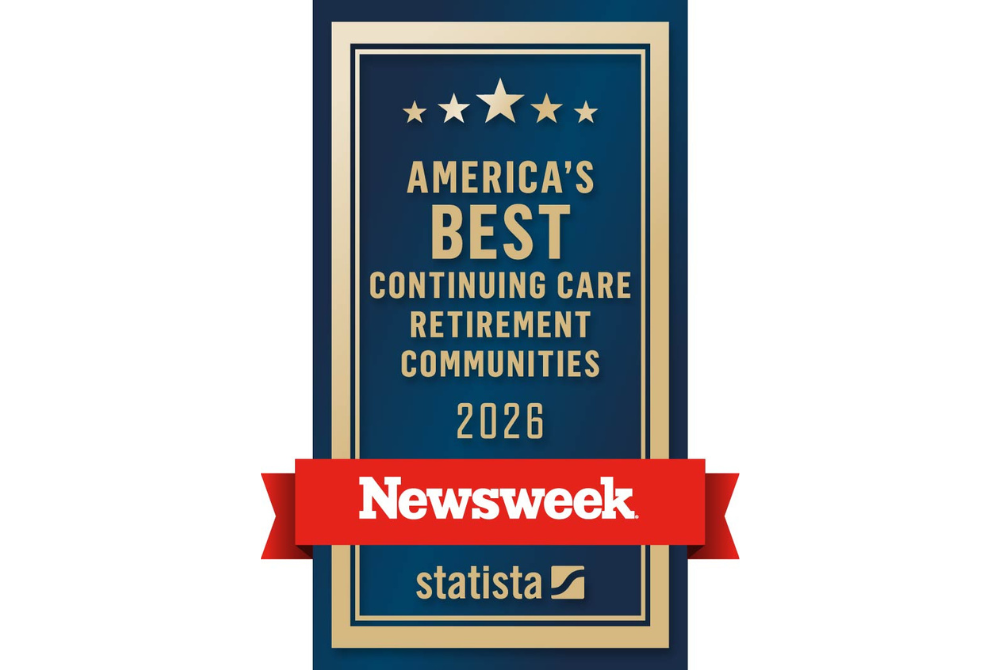Seniors bring a wealth of experience and knowledge to our families and communities. After years of working, raising families, and navigating life’s ups and downs, people aged 55 or better have a unique perspective that can benefit others. Many seniors are also active volunteers, mentors, and community leaders, sharing their time and talents to make a difference in the lives of others.
While aging can bring challenges, it can also bring opportunities to stay healthy, engaged, and fulfilled. As a senior adult, you can optimize your physical, mental, emotional, and even financial well-being by adopting healthy habits. By staying active and connected to your community, you can find a sense of purpose and fulfillment in your later years.
Moreover, you can take advantage of the latest technological advancements to stay connected with loved ones and access essential services. For example, smartphones, tablets, and video conferencing can help you stay in touch with family and friends who live far away. Online resources like virtual tours or classes can also provide an avenue for you to explore new hobbies or interests.
There has never been a better time in history to be 55 or better. However, despite all of these advantages, there are many concerns facing today’s seniors that often go unnoticed. It can be difficult to keep up with a world that’s always changing. You may fear becoming disconnected from others. The best way to deal with your concerns is to face them head-on and become knowledgeable about your options and ways to prioritize your happiness. Read on for advice about handling the top concerns facing seniors today.
Financial Concerns
Financial concerns are among the top challenges facing seniors today. Social Security and Medicare are two critical programs that provide financial support to older adults. However, these programs face ongoing funding issues that could impact their long-term sustainability. It’s essential to stay informed about these issues and advocate for policies that support the sustainability of these critical programs.
In addition to Social Security and Medicare, retirement savings and the cost of living continue to be major concerns for seniors. According to a study by the National Institute on Retirement Security, the median retirement account balance for adults nearing retirement is just $14,500. This is far below what is needed to support a comfortable retirement.
The cost of living is also a significant concern for seniors. Expenses like housing, healthcare, and food can quickly add up, putting a strain on fixed incomes. Planning ahead is key to ensuring financial stability in later years.
Here are some ways seniors can allay their financial concerns:
- Plan for retirement: Take advantage of resources like 401(k)s, IRAs, and other retirement savings plans to build a nest egg for your later years.
- Consider working part-time: If you are healthy and able to work, you may want to consider part-time employment to supplement your retirement income. This can help you stay engaged and social in your community as well!
- Take advantage of Social Security and Medicare benefits: Social Security and Medicare are crucial programs that provide financial support and healthcare to seniors. Make sure to stay informed about your eligibility and benefits to ensure you receive the support you have earned.
- Work with a financial advisor: A financial advisor can provide guidance and support as you navigate complex financial decisions like retirement planning, investments, and estate planning.
- Live within your means: Manage your finances effectively by living within your means and avoiding unnecessary expenses.
- Look for cost-saving opportunities: Save money by taking advantage of discounts for seniors, shopping around for healthcare services, and exploring affordable housing options.
- Consider downsizing: The idea of downsizing to a senior living apartment may sound daunting at first; however, there are many advantages that come with downsizing to a smaller, more affordable home or apartment to reduce housing expenses.
- Explore community-based resources: Many communities offer resources for seniors, such as senior centers, Meals on Wheels, and other programs that can help you save money and stay connected.
Health Concerns
Seniors are more likely to experience chronic health conditions, such as arthritis, diabetes, and heart disease. Access to healthcare and mental health services is crucial for maintaining health and well-being. However, many seniors face barriers to accessing care, including transportation, affordability, and availability.
Long-term care is another critical issue facing seniors, as many require assistance with daily activities as they age. According to the U.S. Department of Health and Human Services, 70% of people turning 65 can expect to use some form of long-term care during their lives. However, long-term care can be expensive, with costs varying depending on the level of care needed and location. Medicaid may cover some long-term care costs, but eligibility requirements and coverage limitations can be complex.
To address these challenges, it’s crucial to stay informed about available healthcare resources and advocate for policies that support access to care for seniors. This can include initiatives to improve transportation options, expand access to mental health services, and provide funding for long-term care programs.
Here are some tips on how you can reduce your health concerns and enjoy a healthy, fulfilling life:
- Stay physically active: Regular exercise can help you maintain your strength, balance, and flexibility, and reduce the risk of falls. It doesn’t have to be anything too strenuous – a daily walk or gentle yoga can make a big difference.
- Maintain a healthy diet: Eating a nutritious diet can provide you with essential nutrients and reduce the risk of chronic conditions like heart disease, diabetes, and certain cancers. Try to include plenty of fruits, vegetables, and whole grains in your meals, and limit your intake of processed foods and sugar.
- Stay up to date on preventive care: Regular health screenings, vaccinations, and other preventive measures can help you stay healthy and catch potential health issues early.
- Stay mentally active: Engaging in mentally stimulating activities or learning a new skill can help you maintain cognitive function and reduce the risk of dementia.
- Seek social connections: Staying connected to family, friends, and community can provide emotional support and reduce the risk of social isolation and loneliness. Joining a community group or volunteering can be a great way to meet new people and stay connected.
- Manage chronic conditions effectively: If you have a chronic condition like diabetes, arthritis, or high blood pressure, it’s essential to manage it effectively by taking medication as prescribed, following a healthy diet, and getting regular exercise.
- Make sure to get enough sleep: Adequate sleep is essential for overall health and can reduce the risk of chronic conditions like heart disease and obesity. Aim for 7-8 hours of sleep per night.
- Don’t be afraid to seek professional help: If you experience mental health concerns like anxiety or depression, seek professional help from a mental health provider. Taking care of your mental health is just as important as your physical health.
Housing Concerns
Housing is a significant concern for seniors, as you may seek modifications to your home to accommodate mobility and accessibility issues. Affordability and accessibility of housing options are also major concerns. Many seniors struggle to find housing that meets their expectations and budget, particularly in areas with high costs of living.
Access to community resources and support can help seniors maintain independence and a high quality of life. Joining an independent living community can help alleviate many of your concerns and take the burden off your shoulders when it comes to housing concerns.
Benefits of living in a senior living community are:
- Safety and security: Senior living communities are designed with safety and security in mind, with features like emergency call systems, security cameras, and secure entrances.
- Maintenance-free living: Many senior living communities offer maintenance-free living, which means that you don’t have to worry about tasks like mowing the lawn, shoveling snow, or fixing things around the house.
- Socialization: Senior living communities offer a variety of opportunities for socialization, including events, clubs, and activities. This can be especially beneficial for those who may feel isolated or lonely.
- Health and wellness: Many senior living communities offer access to fitness centers, swimming pools, and wellness programs, which can help you maintain your physical and mental health.
- Transportation: Many senior living communities offer transportation services, which can be especially helpful for those who no longer drive.
- Access to care: Some senior living communities offer access to on-site medical care, as well as assistance with activities of daily living like bathing, dressing, and medication management.
- Peace of mind for family members: Living in a senior living community can provide peace of mind for family members who may worry about their loved one living alone.
Social Concerns
Seniors may experience social isolation due to changes in family dynamics, mobility limitations, or other factors. Elder abuse and ageism are also significant issues facing older adults. Building strong support networks and addressing these challenges can help you remain connected and engaged in your community.
Social isolation can have a significant impact on your mental and physical health. According to a study by the AARP Foundation, social isolation and loneliness in seniors can lead to higher rates of depression, cognitive decline, and even mortality. Prioritizing social connections by joining community events and volunteering can help you stay connected with your neighbors and peers.
Ageism, or discrimination based on age, is also a concern for seniors. Negative stereotypes about aging can impact how seniors are treated in society, including in the workplace, healthcare settings, and other areas. Ageism is very pervasive in today’s culture, so you may have experienced it in the past without knowing it. Watch out for the signs listed below:
- Stereotyping: This can happen when people make assumptions about us based solely on your age. For example, assuming that you are not capable of learning new technology or assuming that you are no longer interested in socializing.
- Discrimination: You may have been treated unfairly because of your age. For example, being passed over for a job or promotion due to age, or being denied access to certain services or activities.
- Exclusion: This can happen when we are not included in conversations or activities because of our age. For example, being excluded from social events or not being consulted on decisions that affect us.
- Patronizing behavior: This can happen when people speak to us in a condescending or dismissive manner because of our age. For example, using terms of endearment like “sweetie” or “honey” instead of our name.
- Negative language: This can happen when people use negative language to describe us or aging in general. For example, using terms like “senior moment” or “over the hill” to describe us.
Technological Concerns
Digital literacy and access to technology are key ways to remain connected to your loved ones and access important resources. However, security and privacy concerns can present a challenge if you aren’t naturally tech-savvy. Many seniors seek advice on dealing with scams and other digital threats. If this describes you, there are several resources that can help you.
- Local libraries: Many local libraries offer technology classes and resources, including computer labs, free Wi-Fi, and access to e-books and online resources.
- Senior living communities: Many senior living communities, like Monroe Village, offer technology classes and resources, as well as opportunities for socialization and engagement.
- AARP: AARP offers a variety of resources for seniors, including articles, tutorials, and videos on technology topics like social media, online safety, and digital literacy.
- TechBoomers: TechBoomers is a free website that offers tutorials and courses on a variety of technology topics, including social media, online shopping, and digital privacy.
- SeniorNet: SeniorNet is a nonprofit organization that offers technology classes and resources for seniors, as well as opportunities for socialization and engagement.
- YouTube tutorials: YouTube offers a wealth of free tutorials on a variety of technology topics, including how to use specific software or apps, how to set up a new device, and how to troubleshoot common issues.
Conclusion
Seniors face a range of challenges that require attention and resources. By addressing these concerns and finding resources that can help, you can maintain your quality of life and independence. Let’s work together to ensure a bright future for senior living!
If you’re looking for a vibrant, engaging community where you can live life to the fullest, we invite you to consider Monroe Village, a senior living community that offers a range of amenities and services designed to help you live your best life.
From beautiful, spacious apartments to a variety of dining options, fitness programs, and social activities, Monroe Village offers something for everyone. You’ll have access to on-site medical care, as well as assistance with activities of daily living if desired. Plus, you’ll be part of a warm and welcoming community where you can make new friends and create lasting memories.
Don’t just take our word for it – come see for yourself! We invite you to schedule a tour and explore everything that Monroe Village has to offer. We think you’ll love what you see. Contact us to learn more and schedule your tour today. We can’t wait to welcome you to the Monroe Village community!



